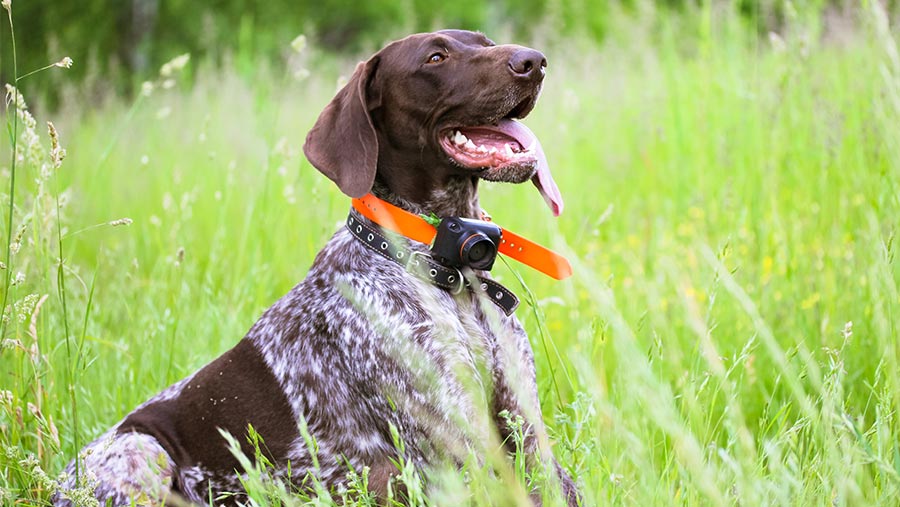Sheep farmers challenge e-shock dog collar ban in England
 © Vita/Adobe Stock
© Vita/Adobe Stock Farm groups have contested the need for electric shock collars for dogs to be banned, arguing that their controlled use can help reduce the risk of attacks on sheep.
The government last week laid legislation in parliament that will see e-collars banned in England from 1 February 2024.
This comes after a 10-year campaign, headed by The Kennel Club, for England to match a ban that has been in place in Wales for the past 13 years.
See also: NSA report reveals 70% of farmers abused and intimidated by dog walkers
The collars, which are used by some as a disciplinary tool, administer an electric shock to a dog’s neck via a remote control. This can be done within a two-mile radius, and for up to 11 seconds.
The Kennel Club and other welfare bodies have argued that this is cruel and unnecessary, while others believe the use of the collars can act as a deterrent against incidents of livestock worrying.
Ian Lloyd, animal health and welfare chairman for Farmers’ Union of Wales, said: “The 2010 ban on the use of e-collars in Wales divided opinion at the time, with many feeling strongly that it should remain available as a last resort.
“Given the problems with dog attacks on sheep in Wales, it would certainly make sense to have proportionate regulation, to ensure over-use is not a problem, rather than an outright ban.
“However, it has to be noted that use of e-collars was extremely limited in Wales and that the vast majority of dog owners responsible for attacks on livestock would never have used an e-collar to train their dogs in any case.”
Toolbox
The National Sheep Association (NSA) has reported that incidents of dogs worrying livestock are on the rise, and dog ownership is at an all time high.
NSA chief executive Phil Stocker said: “Our view is that it is unnecessary to ban the use of e-collars. I think they’re taking away one of the tools in the toolbox to apply corrective behaviour to dogs that have a known problem.
“The collars should be used in the hands of professional trainers as a tool for training dogs that have caused a problem, as an alternative to having a dog put down.
“You could argue that it’s actually humane and welfare friendly because the alternative for some people would be to have their dog destroyed after it has attacked sheep,” said Mr Stocker.
